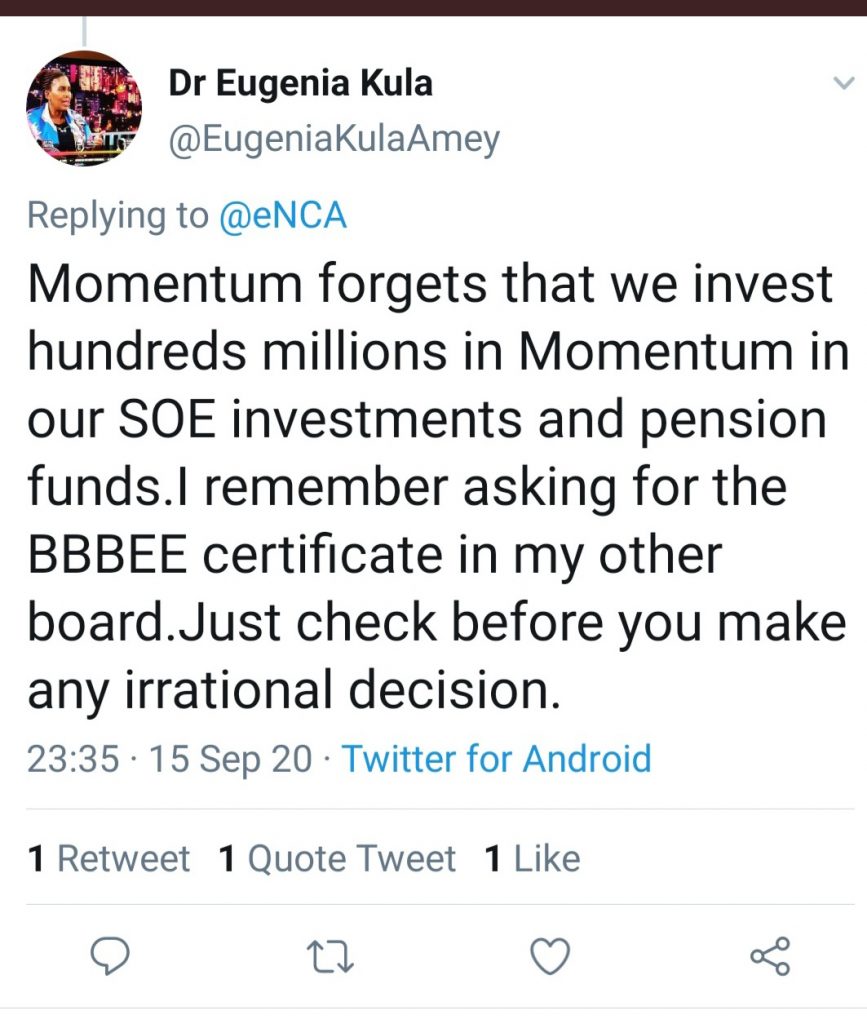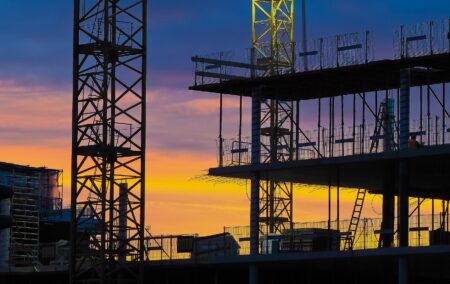A bizarre social media episode this week reflects a broader South African malady which risks condemning us to mediocrity for the foreseeable future, with little hope of sustainably breaking with the surly bonds of our past.
The incident that reflects this malady occurred when insurance giant Momentum announced that it was ending much of its sponsorship of cricket in South Africa, with the exception of the women’s game, partly due to maladministration at the game’s governing body, Cricket South Africa (CSA).
In response, Dr Eugenia Kula-Ameyaw, a CSA board member and transformation czar, tweeted the following: ‘Momentum forgets that we invest hundreds millions (sic) in Momentum in our SOE investments and pension funds. I remember asking for the BBBEE certificate in my other board. Just check before you make any irrational decision.’

The tweet was subsequently deleted and CSA released a statement distancing itself from it, and confirming its contents did not reflect an official CSA position.
Dr Kula-Ameyaw may think that threats and ultimatums are a good way of getting what you want. After all, she has previously expressed her admiration for the Economic Freedom Fighters (EFF) on Twitter, and, just as the eyes are the window into the soul, perhaps social media is a porthole into the mind. We should perhaps be grateful that Dr Kula-Ameyaw did not take up another EFF position and petrol bomb Momentum’s offices – small mercies and all that.
Momentum has no obligation to invest in CSA and their decision to reduce their sponsorship significantly is a rational one, given CSA’s mismanagement of late. And they have not been the only big company to do so; Standard Bank also recently ended its sponsorship deal.
More bizarre
This makes Dr Kula-Ameyaw’s tweet even more bizarre – there are many good causes which need money in this country and cricket administrators should not act as if they enjoy some sort of right to sponsorship. Sponsors will support a good product – which South African cricket is not at the moment.
But this is an attitude that is not uncommon in South Africa. There seems to be a belief among many, especially in the governing party, that South Africa somehow deserves foreign investment (FDI) or financial support.
The fact of the matter is that FDI in South Africa is on a downward trend and it will remain so. Between 2010 and 2016, FDI as a proportion of GDP was 1.2%, compared to a global mean of 5%. And since then FDI has declined further. In 2019, net inflows of FDI as a proportion of GDP was only 1.3% – in the three preceding years it had been below one percent. The last time FDI accounted for more than 5% of GDP was in 2001.
And there are some in the African National Congress (ANC) and the EFF who will sniff at FDI and say that the country shouldn’t be in hock to global (white) monopoly capital. But it is a form of magical thinking to believe that the country will somehow develop or increase the amount of capital here without flows of investment from abroad – and not just ‘hot’ money that comes into the JSE. Investment of the bricks-and-mortar kind will be vital in creating a prosperous country for everyone.
South Africans often think that we are unique – the old South African exceptionalism. Of course, every country is unique and they are all competing for investment from around the globe. In global terms we are something of a backwater, accounting for only about 0.4% of the world’s economy (despite having about one percent of the world’s population). And this proportion has been steadily declining for a number of years.
More welcoming environments
South Africans must remember we are not owed anything. Foreign investment does not come as a result of charity. And ‘it’s rough out there’, as the saying goes. We are competing against many other countries for foreign investment. And many other countries offer more welcoming environments than South Africa’s.
Regulations such as those around BEE, poor labour relations, and uncertainty around property rights, all make South Africa a poorer choice for foreign investors than many other countries.
BEE charters also discourage foreign investors – the Mining Charter has explicitly been flagged as retarding our mining industry, particularly the uncertainty surrounding its provisions and that the government can seemingly change these on a whim.
South Africa still has much going for it – we have a sophisticated banking system, a fairly well-educated population by global standards, and good (but declining) infrastructure. We need to harness these strengths and remove other barriers which make foreign investors look elsewhere, rather than Mzantsi.
And this cannot be stressed enough – South Africa is owed nothing. If we want foreign investment which will help our country reach its potential we need to be welcoming. It should not be hard to do, but it will take political will from the government and the ANC, which, in truth, will be the bigger battle.
If you like what you have just read, subscribe to the Daily Friend

